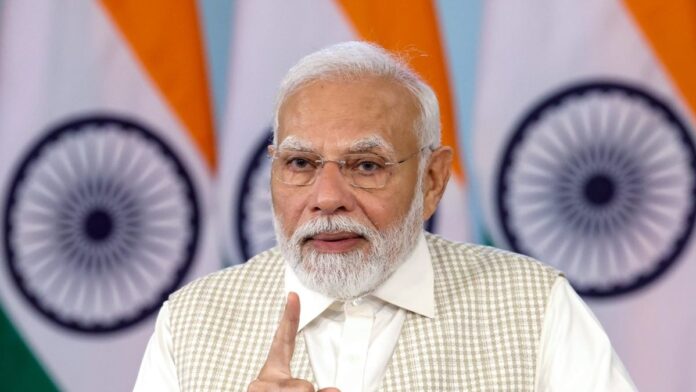Last Updated:
The rural economy in Maharashtra heavily depends on soybean trading, particularly during and after Diwali

The decision is being seen as a significant step to protect farmers from the volatility of market prices, (PTI File)
Providing relief to farmers in poll-bound Maharashtra’s Vidarbha and Marathwada amid their struggle with fluctuating market rates and adverse conditions, Prime Minister Narendra Modi declared a minimum support price (MSP) of Rs 6,000 per quintal for soybean.
Soybean, a key cash crop, is primarily grown ahead of Diwali, as it provides farmers with immediate liquidity during the festive season. The Vidarbha and Marathwada regions are particularly significant for soybean cultivation, with districts such as Washim, Buldhana, Akola, Amravati, Yavatmal, Wardha, Nagpur, Chandrapur, and Bhandara leading the production. Experts estimate that West Vidarbha alone annually produces soybean worth over Rs 7,100 crore.
Earlier, the Maharashtra government had announced a financial aid of Rs 5,000 for distressed farmers to mitigate their losses. Deputy chief minister Devendra Fadnavis had also introduced the Bhavantar Yojana, a scheme ensuring farmers receive the price difference between the MSP and lower market rates directly in their bank accounts. While these measures had helped, the Prime Minister’s announcement of Rs 6,000 MSP has led to optimism among soybean farmers.
SOYBEAN TRADING KEY
The rural economy in Maharashtra heavily depends on soybean trading, particularly during and after the Diwali season. The increased MSP is expected to strengthen this cycle, ensuring better returns for farmers. A soybean farmer from Buldhana district said, “This announcement has brought financial relief to us during the festive season. It gives us hope for a better future.”
The combination of state-level schemes such as Bhavantar and the new MSP has rejuvenated both farmers and traders. The announcement has also raised expectations of higher open market prices for soybean. Traders are now recalibrating their plans to align with the government’s interventions.


